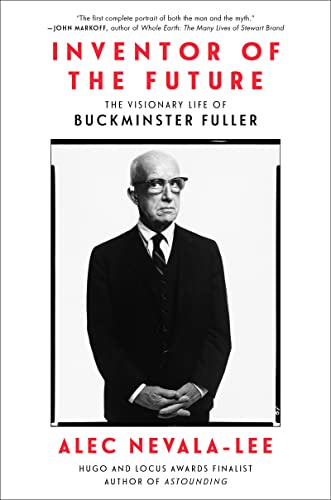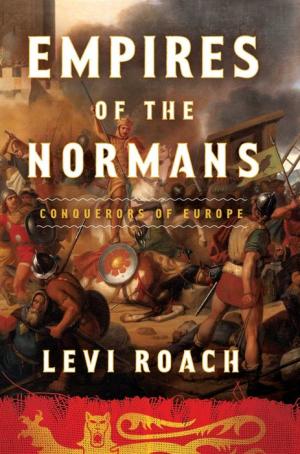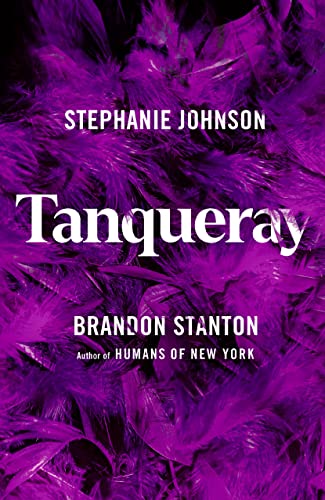Featured Non-Fiction & Biography

ACCEPTANCE: A MEMOIR
by Emi Nietfeld
A luminous, generation-defining memoir of foster care and homelessness, Harvard and Big Tech, examining society’s fixation with resilience—and its cost
As a homeless teenager writing college essays in her rusty Toyota Corolla, Emi Nietfeld was convinced that the Ivy League was the only escape from her dysfunctional childhood. But upward mobility required crafting the perfect resilience narrative. She had to prove that she was an “overcomer,” made stronger by all that she had endured.
The truth was more complicated. Emi’s mom was a charming hoarder who had her put on antipsychotics but believed in her daughter’s brilliance—unlike the Minnesotan foster family who banned her “pornographic” art history flash cards (of Michelangelo’s David). Emi’s other parent vanished shortly after coming out as trans, a situation few understood in the mid-2000s. Her own past was filled with secrets: mental health struggles, Adderall addiction, and the unbecoming desperation of a teenager fending for herself. And though Emi would go on to graduate from Harvard and become a software engineer at Google, she found that success didn’t necessarily mean safety.
Both a chronicle of the American Dream and an indictment of it, this searing debut exposes the price of trading a troubled past for the promise of a bright future. Told with a ribbon of dark humor, Acceptance challenges our ideas of what it means to overcome—and find contentment on your own terms.

LAST RITES
by Todd Harra
The Untold Story of American Funeral and Mourning Traditions
Why do we embalm the deceased? Why are funerals so expensive? Is there a reason coffins are shaped the way they are? When―and why―did we start viewing the deceased? Ceremonies for honoring the departed are crucial parts of our lives, but few people know where our traditional practices come from―and what they reveal about our history, culture, and beliefs about death. In Last Rites, author Todd Harra takes you on a fascinating exploration of American funeral practices―examining where they came from, what they mean, and how they are still evolving.
Our conventions around death, burial, and remembrance have undergone many great transitions―sometimes due to technology, respect for tradition, shifting sensibilities, or even to thwart grave robbers. Here you’ll explore:
• Influences for American rituals―from medieval Europe, the Roman Empire, and even ancient Egypt
• When mourning fell out of fashion―and how George Washington’s passing brought it back
• Abraham Lincoln’s landmark funeral and its widespread impact
• Flowers, liquor, mourning gifts, and caskets―the reasons behind our grieving customs
• Unknown soldiers―how warfare influenced funeral and bereavement practices … and vice versa
• How growing populations, religion, inventions, and media have changed and continue to shape our traditions
• The future of our death rites―mushroom suits, green burial, body donation, flameless cremation, home funerals, and more
The rich story of the American funeral is one of constant evolution. Whether you’re planning a funeral service or are simply intrigued by the meaning behind American burial practices, Last Rites is an informative and compelling exploration of the history―and future―of the ceremonies we use to say farewell to those who have departed this world.

AFTER THE IVORY TOWER FALLS
by Will Bunch
From Pulitzer Prize–winning journalist Will Bunch, the epic untold story of college—the great political and cultural fault line of American life
“This book is simply terrific.” —Heather Cox Richardson, publisher of the “Letters from an American” Substack
“A must-read.” —Nancy MacLean, author of Democracy in Chains
Today there are two Americas, separate and unequal, one educated and one not. And these two tribes—the resentful “non-college” crowd and their diploma-bearing yet increasingly disillusioned adversaries—seem on the brink of a civil war. The strongest determinant of whether a voter was likely to support Donald Trump in 2016 was whether or not they attended college, and the degree of loathing they reported feeling toward the so-called “knowledge economy of clustered, educated elites. Somewhere in the winding last half-century of the United States, the quest for a college diploma devolved from being proof of America’s commitment to learning, science, and social mobility into a kind of Hunger Games contest to the death. That quest has infuriated both the millions who got shut out and millions who got into deep debt to stay afloat.
In After the Ivory Tower Falls, award-winning journalist Will Bunch embarks on a deeply reported journey to the heart of the American Dream. That journey begins in Gambier, Ohio, home to affluent, liberal Kenyon College, a tiny speck of Democratic blue amidst the vast red swath of white, post-industrial, rural midwestern America. To understand “the college question,” there is no better entry point than Gambier, where a world-class institution caters to elite students amidst a sea of economic despair.
From there, Bunch traces the history of college in the U.S., beginning with the first technical schools, through the landmark GI Bill, and the culture wars of the 60’s and 70’s, which found their start on college campuses. We see how resentment of college-educated elites morphed into a rejection of knowledge itself—and how the explosion in student loan debt fueled major social movements like Occupy Wall Street. Bunch then takes a question we need to ask all over again—what, and who, is college even for?—and pushes it into the 21st century by proposing a new model that works for all Americans.
The sum total is a stunning work of journalism, one that lays bare the root of our political, cultural, and economic division—and charts a path forward for America.

DEER CREEK DRIVE
by Beverly Lowry
The stunning true story of a murder that rocked the Mississippi Delta and forever shaped one author’s life and perception of home.
In 1948, in the most stubbornly Dixiefied corner of the Jim Crow south, society matron Idella Thompson was viciously murdered in her own home: stabbed at least 150 times and left facedown in one of the bathrooms. Her daughter, Ruth Dickins, was the only other person in the house. She told authorities a Black man she didn’t recognize had fled the scene, but no evidence of the man’s presence was uncovered. When Dickins herself was convicted and sentenced to life in prison, the community exploded. Petitions pleading for her release were drafted, signed, and circulated, and after only six years, the governor of Mississippi granted Ruth Dickins an indefinite suspension of her sentence and she was set free.
In Deer Creek Drive, Beverly Lowry—who was ten at the time of the murder and lived mere miles from the Thompsons’ home—tells a story of white privilege that still has ramifications today, and reflects on the brutal crime, its aftermath, and the ways it clarified her own upbringing in Mississippi.

KNOCKING MYSELF UP
by Michelle Tea
From PEN/America Award winner, 2021 Guggenheim fellow, and beloved literary and tarot icon Michelle Tea, the hilarious, powerfully written, taboo-breaking story of her journey to pregnancy and motherhood as a 40 year-old, queer, uninsured woman
Written in intimate, gleefully TMI prose, Knocking Myself Up is the irreverent account of Tea’s route to parenthood—with a group of ride-or-die friends, a generous drag queen, and a whole lot of can-do pluck. Along the way she falls in love with a wholesome genderqueer a decade her junior, attempts biohacking herself a baby with black market fertility meds (and magicking herself an offspring with witch-enchanted honey), learns her eggs are busted, and enters the Fertility Industrial Complex in order to carry her younger lover’s baby.
With the signature sharp wit and wild heart that have made her a favorite to so many readers, Tea guides us through the maze of medical procedures, frustrations and astonishments on the path to getting pregnant, wryly critiquing some of the systems that facilitate that choice (“a great, punk, daredevil thing to do”). In Knocking Myself Up, Tea has crafted a deeply entertaining and profound memoir, a testament to the power of love and family-making, however complex our lives may be, to transform and enrich us.

THE VIRAL UNDERCLASS
by Steven W. Thrasher
“An irresistibly readable and humane exploration of the barbarities of class…readers are gifted that most precious of things in these muddled times: a clear lens through which to see the world.”
―Naomi Klein, New York Times bestselling author of This Changes Everything and The Shock Doctrine
From preeminent LGBTQ scholar, social critic, and journalist Steven W. Thrasher comes a powerful and crucial exploration of one of the most pressing issues of our times: how viruses expose the fault lines of society.
Having spent a ground-breaking career studying the racialization, policing, and criminalization of HIV, Dr. Thrasher has come to understand a deeper truth at the heart of our society: that there are vast inequalities in who is able to survive viruses and that the ways in which viruses spread, kill, and take their toll are much more dependent on social structures than they are on biology alone.
Told through the heart-rending stories of friends, activists, and teachers navigating the novel coronavirus, HIV, and other viruses, Dr. Thrasher brings the reader with him as he delves into the viral underclass and lays bare its inner workings. In the tradition of Isabel Wilkerson’s Caste and Michelle Alexander’s The New Jim Crow, The Viral Underclass helps us understand the world more deeply by showing the fraught relationship between privilege and survival.

INVENTOR OF THE FUTURE
by Alec Nevala-Lee
Nominated for The Next Big Idea Club
From Alec Nevala-Lee, the author of the Hugo and Locus Award finalist Astounding, comes a revelatory biography of the visionary designer who defined the rules of startup culture and shaped America’s idea of the future.
During his lifetime, Buckminster Fuller was hailed as one of the greatest geniuses of the twentieth century. As the architectural designer and futurist best known for the geodesic dome, he enthralled a vast popular audience, inspired devotion from both the counterculture and the establishment, and was praised as a modern Leonardo da Vinci. To his admirers, he exemplified what one man could accomplish by approaching urgent design problems using a radically unconventional set of strategies, which he based on a mystical conception of the universe’s geometry. His views on sustainability, as embodied in the image of Spaceship Earth, convinced him that it was possible to provide for all humanity through the efficient use of planetary resources. From Epcot Center to the molecule named in his honor as the buckyball, Fuller’s legacy endures to this day, and his belief in the transformative potential of technology profoundly influenced the founders of Silicon Valley.
Inventor of the Future is the first authoritative biography to cover all aspects of Fuller’s career. Drawing on meticulous research, dozens of interviews, and thousands of unpublished documents, Nevala-Lee has produced a riveting portrait that transcends the myth of Fuller as an otherworldly generalist. It reconstructs the true origins of his most famous inventions, including the Dymaxion Car, the Wichita House, and the dome itself; his fraught relationships with his students and collaborators; his interactions with Frank Lloyd Wright, Isamu Noguchi, Clare Boothe Luce, John Cage, Steve Jobs, and many others; and his tumultuous private life, in which his determination to succeed on his own terms came at an immense personal cost. In an era of accelerating change, Fuller’s example remains enormously relevant, and his lessons for designers, activists, and innovators are as powerful and essential as ever.

EMPIRES OF THENORMANS
by Levi Roach
A brilliant global history of the Normans, who—beyond the conquest of England—spread their empire to eventually dominate Europe, the Mediterranean, and the Middle East.
14th October 1066.
As Harold II, the last crowned Anglo-Saxon king of England, lay dying in Sussex, the Duke of Normandy was celebrating an unlikely victory. William “The Bastard” had emerged from interloper to successor of the Norman throne. He had survived the carnage of the Battle of Hastings and, two months later on Christmas day, he would be crowned king of England. No longer would Anglo-Saxons or Vikings rule England; this was now the age of the Normans.
A momentous event in European history, the defeat of the Anglo-Saxons had the most dramatic effect of any defeat in the high Middle Ages. In a few short months, the leader of northern France became the dominant ruler of Britain. Over the coming decades, the Anglo-Saxon kingdom would be rebuilt around a new landowning class. During the next century, as the Norman kings laid the foundations of modern Britain, their power would spread irresistibly across Europe. From Scandinavia down to Sicily, Malta, and Seville, the Normans built magnificent castles and churches. They cerated a new Europe in the image of their own nobility, recording their power with unprecedented vision, including the Domesday Book.
Empire of the Normans tells the extraordinary story of how the descendants of Viking marauders in northern France came to dominate European, Mediterranean, and Middle Eastern politics. It is a tale of ambitious adventures and fierce pirates, of fortunes made and fortunes lost. Across the generations, the Normans made their influence felt across Western Europe and the Mediterranean, from the British Isles to North Africa and even to the Holy Land, with a combination of military might, political savvy, deeply held religious beliefs, and a profound sense of their own destiny.
Still Hot in Non-Fiction & Biography

TANQUERAY
by Brandon Stanton
The storytelling phenomenon Humans of New York and its #1 bestselling books have captivated a global audience of millions with personal narratives that illuminate the human condition. But one story stands apart from the rest…
She is a woman as fabulous, unbowed, and irresistible as the city she lives in.
Meet TANQUERAY.
In 2019, Humans of New York featured a photo of a woman in an outrageous fur coat and hat she made herself. She instantly captured the attention of millions. Her name is Stephanie Johnson, but she’s better known to HONY followers as “Tanqueray,” a born performer who was once one of the best-known burlesque dancers in New York City. Reeling from a brutal childhood, immersed in a world of go-go dancers and hustlers, dirty cops and gangsters, Stephanie was determined to become the fiercest thing the city had ever seen. And she succeeded.
Real, raw, and unapologetically honest, this is the full story of Tanqueray as told by Brandon Stanton―a book filled with never-before-told stories of Tanqueray’s struggles and triumphs through good times and bad, personal photos from her own collection, and glimpses of New York City from back in the day when the name “Tanqueray” was on everyone’s lips.

LEADERSHIP
by Henry Kissinger
An instant New York Times bestseller
Henry Kissinger, consummate diplomat and statesman, examines the strategies of six great twentieth-century figures and brings to life a unifying theory of leadership and diplomacy
“An extraordinary book, one that braids together two through lines in the long and distinguished career of former Secretary of State Henry Kissinger…In Leadership he presents a fascinating set of historical case studies and political biographies that blend the dance and the dancer, seamlessly.” – James Stavridis, The Wall Street Journal
“Leaders,” writes Henry Kissinger in this compelling book, “think and act at the intersection of two axes: the first, between the past and the future; the second, between the abiding values and aspirations of those they lead. They must balance what they know, which is necessarily drawn from the past, with what they intuit about the future, which is inherently conjectural and uncertain. It is this intuitive grasp of direction that enables leaders to set objectives and lay down a strategy.”
In Leadership, Kissinger analyses the lives of six extraordinary leaders through the distinctive strategies of statecraft, which he believes they embodied. After the Second World War, Konrad Adenauer brought defeated and morally bankrupt Germany back into the community of nations by what Kissinger calls “the strategy of humility.” Charles de Gaulle set France beside the victorious Allies and renewed its historic grandeur by “the strategy of will.” During the Cold War, Richard Nixon gave geostrategic advantage to the United States by “the strategy of equilibrium.” After twenty-five years of conflict, Anwar Sadat brought a vision of peace to the Middle East by a “strategy of transcendence.” Against the odds, Lee Kuan Yew created a powerhouse city-state, Singapore, by “the strategy of excellence.” And, though Britain was known as “the sick man of Europe” when Margaret Thatcher came to power, she renewed her country’s morale and international position by “the strategy of conviction.”
To each of these studies, Kissinger brings historical perception, public experience and—because he knew each of the subjects and participated in many of the events he describes—personal knowledge. Leadership is enriched by insights and judgements that only Kissinger could make and concludes with his reflections on world order and the indispensability of leadership today.

HAPPY-GO-LUCKY
by David Sedaris
David Sedaris, the “champion storyteller,” (Los Angeles Times) returns with his first new collection of personal essays since the bestselling Calypso.
Back when restaurant menus were still printed on paper, and wearing a mask—or not—was a decision made mostly on Halloween, David Sedaris spent his time doing normal things. As Happy-Go-Lucky opens, he is learning to shoot guns with his sister, visiting muddy flea markets in Serbia, buying gummy worms to feed to ants, and telling his nonagenarian father wheelchair jokes.
But then the pandemic hits, and like so many others, he’s stuck in lockdown, unable to tour and read for audiences, the part of his work he loves most. To cope, he walks for miles through a nearly deserted city, smelling only his own breath. He vacuums his apartment twice a day, fails to hoard anything, and contemplates how sex workers and acupuncturists might be getting by during quarantine.
As the world gradually settles into a new reality, Sedaris too finds himself changed. His offer to fix a stranger’s teeth rebuffed, he straightens his own, and ventures into the world with new confidence. Newly orphaned, he considers what it means, in his seventh decade, no longer to be someone’s son. And back on the road, he discovers a battle-scarred America: people weary, storefronts empty or festooned with Help Wanted signs, walls painted with graffiti reflecting the contradictory messages of our time: Eat the Rich. Trump 2024. Black Lives Matter.
In Happy-Go-Lucky, David Sedaris once again captures what is most unexpected, hilarious, and poignant about these recent upheavals, personal and public, and expresses in precise language both the misanthropy and desire for connection that drive us all. If we must live in interesting times, there is no one better to chronicle them than the incomparable David Sedaris.
